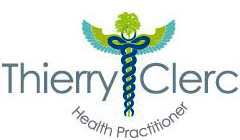This short article on hay fever was written for the 2012 hayfever season for the Therapist, and is re-published on this website. Thierry Clerc practices in Cambridge (UK) as a clinical homeopath and a nutritionist. He is a regular contributor of several national and international health magazines.
Hayfever season has started… what should you do about it?
Compared to last year, hayfever (or allergic rhinitis as it is called medically) has been mild. Only a handful of customers have been coming for every week. More information below to help your friends find the right approach about their seasonal allergy. While most people put up with this form of allergy, from my point of view, and also of many holistic practitioners, hayfever is a major disturbance of the body’s self-regulating mechanisms, and should be addressed seriously.
From a holistic point of view, what causes hay fever?
Medically, hayfever is caused by a build-up of histamine, and for this reason, the first type of medications are anti-histamines. Histamine is a naturally occurring substance in the body that has many functions. In essence, the level of histamines will increase locally or generally when there is stress in the body. For example, a cut or a wound will increase histamines in the area, and this will trigger an inflammation and then a healing response.
What doctors fail to tell you is that basically everything increases histamine level in the body: the food, we eat (histamine is a key part of the digestive process), emotional stress (histamine is a neurotransmitter), and physical stress. Being dehydrated will increase significantly histamine levels.
Hayfever sufferers have a very high level of histamine when they suffer from hayfever but also at the time when they do not appear to suffer (such as winter). Because of this, their level of histamines can reach the symptoms threshold when being exposed to innocuous stressors, such as pollen, dust, animal hair or plant moulds. The job of a health practitioner is to find the cause of the high level of histamines, and set up a plan to reduce it.
Profiles of hayfever sufferers
There is usually a genetic link to that condition, and when looking at the family medical history, it seems that this pathology is closely linked to asthma, eczema, chronic constipation and chest infections.
The majority of patients suffer from hayfever at the same time every year, depending on their sensitivity to pollen. In London, when I was practicing there, the majority of sufferers were sensitive to the pollen of willow, birch or hornbeam (pollen season: March to April). In Cambridge, grass and nettle are quite prevalent (both pollinating from May to September), but agricultural chemicals, heavily used around the city seems also to be a trigger.
Interestingly, a large minority of customers have actually all-year round symptoms, with permanent itches, sniffles and sneezes, triggered by a wide range of allergens.
How to reduce the symptoms of hayfever
Beside trying to stay away from known stressors, a hayfever sufferer should try to reduce his or her “normal” level of histamines. Drinking more water, reducing coffee, soft drink and possible food allergens, may help. In general, I suggest people to stay off sugar, wheat and dairy during their hayfever seasons until they are symptom-free. You can find more tips in the Nutrition section of our website.
On top of this, off the shelf natural alternatives can also help. I really like A. Vogel’s Luffa Complex tincture (which can be found at Revital). It can be found in form of tinctures or nasal spray and has no counter-indications. Liquorice tincture with a good multi-vitamin complex is also fantastic, but I usually advise against self-prescribing liquorice as some people can be sensitive to it after long-term use I also make a homeopathic remedy with the season’s pollen, that seems to work well.
What is the best way to address hayfever in the long term
To fully eliminate the symptoms of hayfever however, a more complex support is required. You cannot “fix” hayfever during a hayfever crisis as the body is in such a state of shock. You should try and alleviate the symptoms, and work on reducing your overall “normal” level of histamines on winter.
By experience, this is best done with a health practitioner, and it takes about one to three years to be fully symptoms free, with a 50/70% improvement on the first year for most customers. For more information, feel free to contact us.
Thierry Clerc, MARH, RHom, MSc
Registered Health Practitioner, Cambridge (UK)
Clinical Homeopathy, Bioresonance, Nutrition & Allergy

